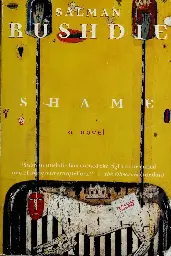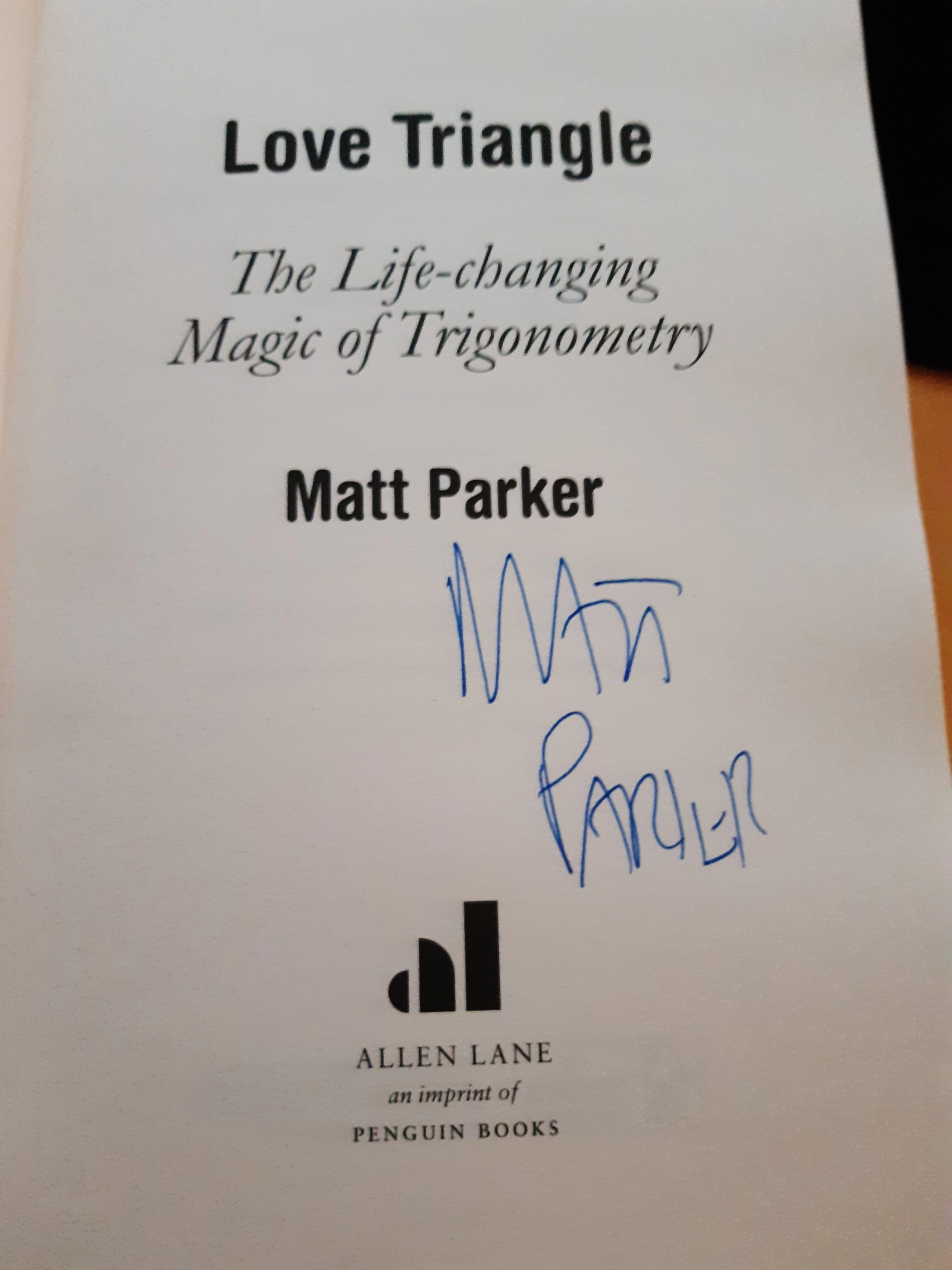Search
A Review of Jessica Whyte's “The Morals of the Market” (2019)


The term "neoliberalism" gets thrown a lot in intellectual and political discourse, yet with seldom clarity to what it entails. Some may loosely relate it to the de-politicisation of the economy, the weakening of the State in favor of private corporations, or even the revival of laissez-faire capitalism. While one cand find some truth in those assumptions, they inevitably stray from the ideology as conceived by the neoliberal intellectuals of the past century.
Besides narrating the marriage of neoliberalism and human rights (which we will cover later), this book sheds a light on what actually neoliberalism stood for. Whyte contends that what the neoliberals envisaged through their numerous gatherings following the second world war, was a new, global economic order premised on what they have termed the “morals of the market.”
>[T]he ‘morals of the market’ were a set of individualistic, commercial values that prioritised the pursuit of self-interest above the development of common purposes. A market society required a moral framework that sanctioned wealth accumulation and inequality, promoted individual and familial responsibility, and fostered submission to the impersonal results of the market process at the expense of the deliberate pursuit of collectively formulated ends. It also required that moral obligations are limited to the requirement that we refrain from harming others, and do not require positive obligations to others. (Intro.)
Far from the early liberal concept of the "invisible hand" or the criticisms by opponents of “amoral economics,” what the neoliberals proposed was state interference for the sake of maintaining individualistic freedom in the market. Neoliberalism is what it is: it is not a return to the old fin de siècle liberal economy, but a solution to the problems that the latter faced.
In developing their moral order, neoliberal intellectuals played with notions of "civilisation" and "anti-totalitarianism." The Mont Pèlerin Society of 1947 met in the context of two fatidical events: the decolonisation movement in the Third World, and the drafting of an international human rights charter. The neoliberal discourse evolved in relation to colonialism and human rights throughout the decades. For instance, while neoliberal intellectuals were critical of the British administration of the colonies for obstructing the competitive market, they saw the decolonial movements as a turn towards "communist totalitarianism" which must be stopped in order to secure global free trade and the extraction of natural resources, in other words "neocolonialism".
Similarly, the intellectuals at Mont Pèlerin Society invoked many critical remarks regarding the UDHR. In particular, they sought to undermine the "superfluous" rights and prerogatives which it included, namely social, economic and cultural rights that, in the eyes of MPS, was a stepping stone for totalitarianism: welfare policies lead to socialism, socialism to communism and finally towards totalitarianism. Their criticism for human rights accrued in degree with the drafting of the human rights covenants which accentuated social and economic rights. However, the neoliberal criticism was not directed towards human rights per se, but the scope of said human rights. These intellectuals adopted a Lockean conception of human rights that limited itself to the protection of individualistic freedom and private property.
The theoretical doctrines of the neoliberals contended with the real-life events in an intriguing manner. Neoliberals supported several undemocratic regimes, namely in Pinochet's Chile where they enacted economic reforms and even defended the political crackdown of the Pinichet regime. This weird stance did not invalidate their defense of human rights and freedom:
>Friedman’s argument in Chile was not that political freedom and economic freedom were ‘entirely unrelated’, as Letelier and Klein both argue.40 Rather, he argued that they were intimately related: property rights are the essential foundation of all other human rights, he contended, and a free market is necessary for realising the ‘equal right to freedom’. (Ch. 4)
In addition, the showdown between the neoliberals and human rights NGOs' investigating Pinochet's violations wa sless radical than what it seemed. NGOs such as Amnesty International, Human Rights Watch and Liberté Sans Frontières originated from a similar human rights discourse to that of the neoliberals, which limited the scope of human rights that are worth protecting.
>Their [humanitarian NGOs] special contribution was to pioneer a distinctly neoliberal human rights discourse, for which a competitive market order accompanied by a liberal institutional structure was truly the last utopia. (Ch.5)
Whyte's critique of human rights and neoliberalism is very essential in this day and age, especially in a Third World inflitrated by humanitarian NGOs whose agenda serves the interests of global capital and reproduces the injustices of the past century's colonialism and coercive interventions in the affairs of postcolonial polities. Whyte's reference to postcolonial intellectuals such as Fanon and Nkrumah is also very much cherished.
some connections between publishers dedicated to literature from the global south
i stumbled upon an offer of the kl noir series from malaysia > i remembered that it was brooklyn-based akashic books who had started the noir series
and it was also akashic who cooperated with peepal tree from uk > by now, their peekash collabo has already turned into a publisher of its own: https://www.peekashpress.com/
The Fisherman by John Langan (2016)

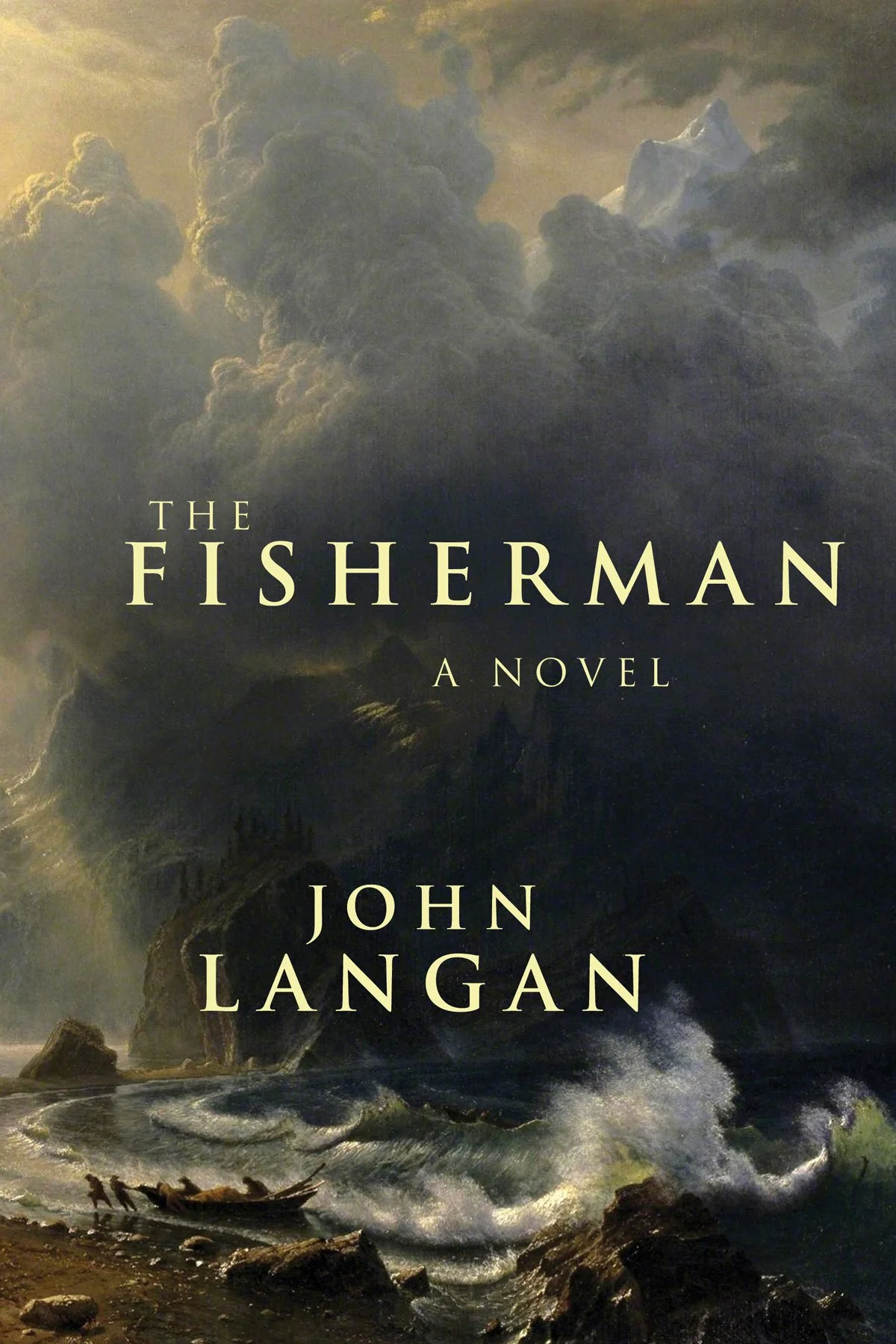
cross-posted from: https://lemmy.world/post/17146897
> The Fisherman is a horror novel by John Langan that won the 2016 Bram Stoker Award for Best Novel. The story follows two widowers, Abe and Dan, who bond over their shared grief and a passion for fishing. When they hear rumors of a mysterious and cursed fishing spot called Dutchman's Creek, they decide to investigate, despite warnings from locals. Soon, the men find themselves drawn into a tale as deep and old as the Reservoir. It's a tale of dark pacts, of long-buried secrets, and of a mysterious figure known as Der Fisher: the Fisherman. It will bring Abe and Dan face to face with all that they have lost, and with the price they must pay to regain it. > > Reviews > - > grimdarkmagazine.com | goodreads.com | > > Lovecraft Done Right | The Fisherman by John Langan - Book Review (video) > > author interviews > > !
Paul austere died yesterday at the age of 77
His notable works include The New York Trilogy (1987), Moon Palace (1989), The Music of Chance (1990), The Book of Illusions (2002), The Brooklyn Follies (2005), Invisible (2009), Sunset Park (2010), Winter Journal (2012), and 4 3 2 1 (2017). His books have been translated into more than forty languages.[1]
a way to list books by ratings in goodreads?
hi, i recently wanted to look for the best psychology books in [https://www.goodreads.com/] and website doesn't allow me to sort them by ratings. is there any way to do this? i don't want to end up searching "best psychology books" on web and look for ai generated blogs. thanks.
My review of “Orientalism” (1978) by Edward W. Said


When I asked my friend how she found the book to be, she described it as “a jumble of thoughts that felt familiar.”
As Orientals, they indeed feel familiar to us. Although I never picked up the book before now, I couldn't say I have not read it. I read it on the faces of Western "political experts". I read it in laws of counterterrorism and anti-immigration. I read it in the newspapers, listen to it on the radio, and watch it on the TV. But most crucially, I read it when I look into the mirror, this self perception of being an “Oriental”, an inferiority complex transfused throughout the years from teachers and professors, intellectuals and celebrities, family and friends, and especially strangers.
>“Oriental students (and Oriental professors) still want to come and sit at the feet of American Orientalists, and later to repeat to their local audiences the clichés I have been characterizing as Orientalist dogmas.” (Ch.3, IV).
Orientalism, according to Said, is not merely a scientific, objective field as it has always been characterised by the Orientalist himself. Rather, it is a subjectivity: that is, the Orientalist does not study the Orient, but he “comes to terms” with an Orient “that is based on the Orient’s special place in European Western experience.” Though the same may be said about the Occident which does not just exist as an inert fact of nature, for such divide is a social construct first and foremost, and does not translate smoothly into a physical or geographical classification.
Orientalism reflects a history of colonial exploitation. By scrutinising, interpreting and classifying the Orient, the Orientalist justified (in advance and after the fact) the West's right to dominate, restructure and have authority over the Orient.
Although the otherisation of the Oriental has already existed for millenia, Said traces back the changing point of Orientalism to the onset of Napoleon's invasion of Egypt. It is at this point in time that Orientalism was institutionalised and 'scientisized'. In the 18th and 19th centuries, the majority of Orientalists were philologists and anthropologists. Yet, the core values of the scientific method—objectivity, disinterest, mutability—notwithstanding, Orientalism preserved, see “secularized,” the mythic discourses of premodernity.
>“the scientific categories informing late-nineteenth-century Orientalism are static: there is no recourse beyond “the Semites” or “the Oriental mind”; these are final terminals holding every variety of Oriental behavior within a general view of the whole field. As a discipline, as a profession, as specialized language or discourse, Orientalism is staked upon the permanence of the whole Orient, for without “the Orient” there can be no consistent, intelligible, and articulated knowledge called “Orientalism.”” (Ch.3, II).
Although Science, as an ideal of truth should theoretically be prone to change, admits proof and counterproof; the scientist still holds on his shoulders the overwhelming weight of his predecessors and their values. He is impelled to follow their path, avoid uncertainty and existentiality, to reproduce mythic discourses. And this is especially relevant to Orientalism.
From an existential standpoint, the gaze of the White Man makes of the Oriental man “first an Oriental [essence] and only second a man [existence].” Dehumanised, otherised and silenced; the Oriental is a piece of mold that can be shaped by the Orientalist according to the zeitgeist of his epoch on the one hand, and to the eccentric tendencies of his personality.
In the second half of the twentieth century, which coincides with the decolonisation movement and the zenith of American hegemony, Orientalism went through major transformations. European focus on philology was superseded by a jejune, American obsession in “Social Sciences”. The Orient became then the experimental laboratory of the American social scientist.
>“No longer does an Orientalist try first to master the esoteric languages of the Orient; he begins instead as a trained social scientist and “applies” his science to the Orient, or anywhere else.” (Ch.3, IV).
Late (read: American) Orientalism was shaped by government and corporate interests in the non-Western world, and fueled by the Cold War and competition with the Soviet Union. This is why very perverse and polemical "studies" of Islam were mass-published (especially by Zionists). Islam, according to the modern Orientalist, is a volatile and purely political religion, a force “contending with the American idea for acceptance by the Near East” along with communism. All this whilst maintaining the early myths of “Oriental despotism.”
>“The legendary Arabists in the State Department warn of Arab plans to take over the world. ... the passive Muslims are described as vultures for “our” largesse and are damned when “we lose them” to communism, or to their unregenerate Oriental instincts: the difference is scarcely significant.” (Ch.3, IV).
Edward Said's magnum opus is a seminal and well-acclaimed work. Yet it had its fair share of critics. Apart from the Zionists and Orientalists themselves (which we shall dusregard), some scholars criticised Said's dealing with the Middle East as a monolithic category consisting of pure Muslim Arabs. It is not entirely incorrect to say that Said did not leave much space to the other constituents of the region; however, Said is very well aware of the cultural and ethnic diversity characterising West Asia and North Africa. Rather, their virtual absence from the big picture is a better reflection of the Orientalist's vision of what the Near East is, in which non-Arabs and non-Muslims hold a peripheral, if not silent, role. Britain and France, Said contends, viewed themselves as the protectors of Christian minorities from the evils of Islamic "barbarism."
Moreover, Islam is equally simplified by Orientalists and reduced to Islamic Orthodoxy. In the Islamic Orient, everything cannot but be perceived as Islamic, even modernisation and the adoption of European technologies and institutions is itself Islamic. To reiterate a previous thought, the essence precedes existence.
It is important to note that this book was released decades before the 9/11 attacks which spurred another Orientalist wave. Although today the formal, academic field is almost nonexistent, its essentialist doctrines are still being disseminated into the masses, both in the West and the East. The face of Western progressivism has shown a grim, and not entirely unfamiliar face, especially amid the genocide in Gaza. The struggle against dehumanisation and exploitation is not over yet.
P.S. Take a shot every time you read the word Orient.
Books similar to Wool, or the vaults in Fallout?
I really like the lore behind the vaults in the Fallout games. The only book I know that's somewhat similar is Wool, are there any others?
Academic and narrative books + podcast episodes on fragrance
I have compiled various works on smell, fragrance, and perfumery for anyone seeking more in-depth information on the matter. The following are links to titles themselves or podcast episodes from the New Books Network wherein a host interviews the author of a new book whose topic relates to fragrance or scent.
Books
Internet Archive
This search pulls up works freely available on the Internet Archive with the subject "Perfume". To read many of the listed books, you need to have an account on the Internet Archive to check them out from the digital library. It is free to register! I would highly recommend making an account since it'll allow you access to so much free multimedia.
- Perfume: Joy, Obsession, Scandal, Sin: A Cultural History of Fragrance from 1750 to the Present by Richard Howard Stamelman
- The Artifice of Beauty: A History and Practical Guide to Perfumes and Cosmetics by Sally Pointer
- The Scent Trail: How One Woman's Quest for the Perfect Perfume Took Her Around the World by Celia Lyttelton
Other Sources
- The Perfume Lover: A Personal History of Scent by Denyse Beaulieu
- Fragrance and Wellbeing: Plant Aromatics and Their Influence on the Psyche by Jennifer Peace Rhind
- The Case Against Fragrance by Kate Grenville
- Scent: A Natural History of Fragrance by Elise Vernon Pearlstine
- Sacred Luxuries: Fragrance, Aromatherapy, and Cosmetics in Ancient Egypt by Lise Manniche
- Perfumery: The Psychology and Biology of Fragrance by D. M. Stoddart, Steve Van Toller, George H. Dodd
- An Ethnography of Fragrance: The Perfumery Arts of ʿAdan/Laḥj by Dinah Jung
Academic Works
- Fundamentals of Fragrance Chemistry by Charles S. Sell
- Great overview of fragrance as an industry
- Perspectives in Flavor and Fragrance Research by Philip Kraft and Karl A. D. Swift
- Some neat-sounding chapters include
- "New Woody and Ambery Notes from Cedarwood and Turpentine Oil"
- "Pyrazines and Pyridines from Black Pepper Oil (Piper nigrum L.) and Haitian Vetiver Oil"
- "New Alicyclic Musks: The Fourth Generation of Musk Odorants"
- Some neat-sounding chapters include
- Common Fragrance And Flavor Materials: Preparation, Properties And Uses by Johannes Panten and Horst Surburg
- This work speaks on sourcing and processing of various compounds used in fragrance
- Science and Technology of Aroma, Flavor, and Fragrance in Rice by Srivastav, Prem Prakash, and Deepak Kumar Verma
- For anyone who enjoys a good rice note. Here's a quote from the preface:
> Aroma is one of the diagnostic aspects of rice quality that can determine acceptance or rejection of rice before it is tested. It is also considered as an important property of rice that indicates its preferable high quality and price in the market. An assessment of all known data reveals that more than 450 chemical compounds have been documented in various aromatic and non-aromatic rice cultivars. The primary goals were to identify the compounds responsible for the characteristics and rice aroma. Many attempts were made to search for key compounds for rice aroma, but no single compound or group of compounds could be reported that are fully responsible for rice aroma.
Multimedia Materials
Here are some results from the George Mason University Open Educational Resource Metafinder on perfume and fragrance, which will bring up multimedia on the searched topic, including photos of antique bottles, vintage ads, articles, and more. The metafinder searches from various archives, including the Digital Public Library of America, the Library of Congress (of the U.S.), and JSTOR, for materials mentioning the search term(s) in their metadata (e.g., titles, content, or tags).
Podcast (on Books)
I have found that the New Books Network podcast has a great range of episodes related to sense of smell, fragrance, spices, and other scented items, going beyond the human species' experiences of this sense. As far as the format, the episode host simply interviews the author of a new book on its subject matter.
Below are the episodes I found just by searching the network's site for "fragrance" and "perfume". The types of books below range from monographs to biographies to literature. The pages linked below include a description of the book's subject, information on the author and host, and an embedded audio player with the episode so you can listen from the web page.
Science
- The Secret Perfume of Birds: Uncovering the Science of Avian Scent by Danielle J. Whittaker, hosted by Galina Limorenko
- Smellosophy: What the Nose Tells the Mind by Ann-Sophie Barwich, hosted by Joseph Fridman
- Sensory Experiments: Psychophysics, Race, and the Aesthetics of Feeling by Erica Fretwell, hosted by Chad Valasek
Biographies (of celebrities who had fragrance lines)
- Elsa Schiaparelli: A Biography by Meryle Secrest, hosted by Oline Eaton
- On Elizabeth Taylor: An Opinionated Guide by Matthew Kennedy, hosted by Daniel Moran
History
- The Scent of Empire: Chanel No. 5 and Red Moscow by Karl Schlögel, hosted by Jana Byars
- Vanilla: A Global History by Rosa Abreu-Runkel, hosted by Amir Sayadabdi
- Scent: A Natural History of Fragrance by Elise Vernon Pearlstine, hosted by Miranda Melcher
- Scents of China: A Modern History of Smell by Xuelei Huang, hosted by Miranda Melcher
- The Scent of Ancient Magic by Britta K. Ager, hosted by Miranda Melcher
- Victims of Fashion: Animal Commodities in Victorian Britain by Helen Louise Cowie, hosted by Miranda Melcher
- Histories of Health and Materiality in the Indian Ocean World: Medicine, Material Culture and Trade, 1600-2000 by Anne Gerritsen and Burton Cleetus, hosted by Ahmed Almaazmi
- Fragrant Frontier: Global Spice Entanglements from the Sino-Vietnamese Uplands by Annuska Derks, Jean-François Rousseau, and Sarah Turner, hosted by Julia Heinle
Literature
I just found out that Humble Bundle has a book bundle for Terry Pratchett's Discworld. A 39 book bundle that is redeemed through Kobo.com.
I just found out that Humble Bundle has a book bundle for Terry Pratchett's Discworld. A 39 book bundle that is redeemed through Kobo.com.
Edit: Only available in the US.
https://www.humblebundle.com/books/terry-pratchetts-discworld-harpercollins-books
A Review of Eduardo Galeano's “Soccer in Sun and Shadow” (2013)


cross-posted from: https://lemmy.ml/post/10484701
> The best way I could describe Uruguayan Journalist Eduardo Galeano's book is that it's a poetical obituary of the art of soccer. As the author writes in the first lines, “the history of soccer is a sad voyage from beauty to duty. When the sport became an industry, the beauty that blossoms from the joy of play got torn out by its very roots. In this fin de siècle world, professional soccer condemns all that is useless, and useless means not profitable.” > > Galeano recounts the development of the sport from its ancient roots, its bourgeois upbringings in the modern age, through its proletarisation and to its eventual commercialisation by the global market. The history of soccer is one of those few instances whose origins are less grim than their present actuality. > > >The fact is that professional players offer their labor power to the factories of spectacle in exchange for a wage. The price depends on performance, and the more they get paid the more they are expected to produce. Trained to win or to win, squeezed to the last calorie, they are treated worse than racehorses. > > Soccer in the chaotic 20th century turned from an innocent sport into a profitable and equally shady industry milked to its last bit by bureaucrats, merchants and corporations. Players are owned and sold and disposed of like slaves in plantations. The profession being shaped by the entertainment industry, the common man fails to regard the soccer player (or of any other mainstream sport for that matter) as a worker with labour rights, and the international bureaucracy tries its best to maintain the status quo. > > >The machinery of spectacle grinds up everything in its path, nothing lasts very long, and the manager is as disposable as any other product of consumer society. > > But, despite the chronological narration, this is no history book, far from it. The passion and vividness in which the author describes some of most iconic plays from around the world, old amd new, capture a beaty that no camera or TV screen can ever catch. > > To Galeano, soccer is an art; the players are performers; and the stadium is a theatre. He denounces the mechanical vocabulary employed by the critics and commentators: the players of the Argentine club River Plate couldn't be a "Machine" when they had so much fun they'd forget to shoot at the goal; the 1974 world cup Dutch team nicknamed "Clockwork Orange" was more of a jazz band. > > The reader throughout the book ceases to be simply a spectator. No, he is now bonding with the fatigued striker, the goalkeeper criminalised by the fans, the distressed referee, the suicidal star and so on. > > Galeano remains very much aware that sport cannot be detached from the politics of our age. To some fans, especially in South America, > > >The club is the only identity card [they] believe in. And in many cases the shirt, the anthem, and the flag embody deeply felt traditions that may find expression on the playing field but spring from the depths of a community’s history. > > ”Soccer and fatherland are always connected, and politicians and dictators frequently exploit those links of identity.” The championship is a national pride, countries host the world cup to bleach the regime's record of oppression, wins are offrances to the monarch or the tyrant. > > Being a Uruguayan, the author shifts the spectacle of soccer from the European pitches to the South American turf, breaking the mythological narrative of European dominance and superiority in a sport that had no meaning before the Brazilian Mulattoes Friedenrich and Pelé, the Argentine Di Stéfano, the grandsons of slaves Gradín and Delgado, all dabbled with the ball. > > The game of soccer was and still is the source of happiness and glimmer of hope for the youth of the world. As for the professional sport, we must mourn its beautiful past and cry on the cold body that is shamelessly called “soccer.”
Sherlock Holmes: The Case of the Sewer Menace


Title: The Monster that Haunted the Sewers.
Inspector Lestrade (joyfully sarcastic): "Is that your gigantic monster, Holmes? It's just a big rat!"
Watson: (hears something a trifle alarming just behind)
(visual: a giant spider is seen emerging) ***
Pardon if this doesn't quite belong here. I searched Lemmy explorer for a Holmes community, but saw none. It doesn't quite fit my own community, either (Euro Graphic Novels), so I figured maybe here?
In any case, this little cartoon is by Nicolas Barral, and is part of a bande dessinees series called Ex-Libris, published by Fantasmagories.
Note: if someone wanted to start up a Holmes community on Lemmy, please tag me so I can subscribe, thanks!
Full-Text Search in the Largest Online Libraries, Open Access to Them, and AI Operating Their Data
In 2023, several largest online libraries have simultaneously started to introduce search through the entire text of all books in their collections, going beyond just titles, descriptions, and book metadata.
Here are some notable developments in this area:
-
Z-library now offers a full-text search across its vast collection of books (over 14 million books and 84 million articles).
-
Nexus/STC software company provides a full-text search over its current selection of 250,000 books and approximately 2 million papers. It continues to add around 10,000 new items daily and aims to index all the books from the largest online libraries within the next year(Anna's Archive, the largest repository, hosts 21 million books and 97 million papers). Additionally, Nexus/STC was the first to develop an AI technology that operates all the data from such amount of books (the mentioned 250,000 selected items).
-
Anna's Archive, which aggregates all items provided by Z-library, Library Genesis, Sci-Hub, and other resources, has long been developing full-text search functionality. While the release date remains unknown, it is anticipated in the near future.
-
In August 2023, Google Books introduced a limited full-text search feature that allows users to search within the abstracts of its indexed books. Due to copyright constraints, the project's development is restricted, offering only a glimpse of its potential without comprehensive research capabilities.
-
OpenLibrary features a "Search Inside" tool on its platform, yet its book collection is dozens of times smaller than Z-library's and lacks additional parameters for refining the searches.
Shadow libraries currently house the largest online collections of digitized and born-digital books globally. Their extensive offerings surpass those of any other platform, making comprehensive search results difficult to achieve even with full-text search functionality. Full-text search in them is a powerful research tool, that allows to get search results not available to Google or any other search engine. To keep up with the search and AI technologies, American and European companies must urgently advocate for radical changes in copyright laws.
A significant growth is anticipated in the following areas:
- Instant access to complete collections of the world's largest libraries for individuals worldwide, facilitated by extensive digitization efforts focusing initially on non-fiction. Most important, the most known and used books have been already digitized.
- Full-text search across all indexed books simultaneously.
- AI systems fed with all the data from online libraries, making it operate a crucial part of knowledge available to humankind. The competencies of these new AI models will far surpass the current ones.
The number of ebooks available for free access is increasing every year. It seems impossible to combat this phenomenon as the storage space for books is negligible, leading to the creation of numerous copies and backups. It is likely that subscription-based models will emerge as a way to sustain the mentioned online services based on usage levels and that the books industry will have to accept it and adapt.
P.S. Please note that approximately 98% of links to Z-library are scams, potentially run by government entities to create confusion among users. All shadow libraries have to withstand severe pressure from the FBI and other government agencies.
Tags: ai-industry-development, all-books-access, all-books-digitization, ai-books-feedingi, libraries-full-text-search, indexing-all-books, online-libraries, open-access, search-technologies-development, shadow-libraries, the-largest-libraries
https://www.goodreads.com/author/show/37607982.Artem_Orel/blog
Currowan: a Story of Fire and a Community During Australia's Worst Summer


Currowan: a Story of Fire and a Community During Australia's Worst Summer
A moving insider’s account of surviving one of Australia’s worst bushfires – and how we live with fire in a climate-changed world
The gripping, deeply moving account of a terrifying fire – among the most ferocious Australia has ever seen
The Currowan fire – ignited by a lightning strike in a remote forest and growing to engulf the New South Wales South Coast – was one of the most terrifying episodes of Australia’s Black Summer. It burnt for seventy-four days, consuming nearly 5000 square kilometres of land, destroying well over 500 homes and leaving many people shattered.
Bronwyn Adcock fled the inferno with her children. Her husband, fighting at the front, rang with a plea for help before his phone went dead, leaving her to fear: will he make it out alive?
In Currowan, Bronwyn tells her story and those of many others – what they saw, thought and felt as they battled a blaze of never-before-seen intensity. In the aftermath, there were questions: why were resources so few that many faced the flames alone? Why was there back-burning on a day of extreme fire danger? Why weren’t we better prepared?
Currowan is a portrait of tragedy, survival and the power of community. Set against the backdrop of a nation in the grip of an intensifying crisis, this immersive account of a region facing disaster is a powerful glimpse into a new, more dangerous world – and how we build resilience.
Complete Works of William Shakespeare (Illustrated)


O, then I see Queen Mab hath been with you.
She is the fairies' midwife, and she comes
In shape no bigger than an agate stone
On the forefinger of an alderman,
Drawn with a team of little atomies
Athwart men's noses as they lie asleep;
Her wagon spokes made of long spinners' legs,
The cover, of the wings of grasshoppers;
Her traces, of the smallest spider's web;
Her collars, of the moonshine's wat'ry beams;
Her whip, of cricket's bone; the lash, of film;
Her wagoner, a small grey-coated gnat,
Not half so big as a round little worm
Prick'd from the lazy finger of a maid;
Her chariot is an empty hazelnut,
Made by the joiner squirrel or old grub,
Time out o' mind the fairies' coachmakers.
And in this state she gallops night by night
Through lovers' brains, and then they dream of love;
O'er courtiers' knees, that dream on cursies straight;
O'er lawyers' fingers, who straight dream on fees;
O'er ladies' lips, who straight on kisses dream,
Which oft the angry Mab with blisters plagues,
Because their breaths with sweetmeats tainted are.
Sometime she gallops o'er a courtier's nose,
And then dreams he of smelling out a suit;
And sometime comes she with a tithe-pig's tail
Tickling a parson's nose as 'a lies asleep,
Then dreams he of another benefice.
Sometimes she driveth o'er a soldier's neck,
And then dreams he of cutting foreign throats,
Of breaches, ambuscadoes, Spanish blades,
Of healths five fadom deep; and then anon
Drums in his ear, at which he starts and wakes,
And being thus frighted, swears a prayer or two
And sleeps again. This is that very Mab
That plats the manes of horses in the night
And bakes the elflocks in foul sluttish, hairs,
Which once untangled much misfortune bodes
This is the hag, when maids lie on their backs,
That presses them and learns them first to bear,
Making them women of good carriage.
This is she...
--- 16k page .PDF, so it may take a bit to load through the web interface. Here's some alternative file formats from Anna's.
Fahrenheit 451 - Ray Bradbury - 1953

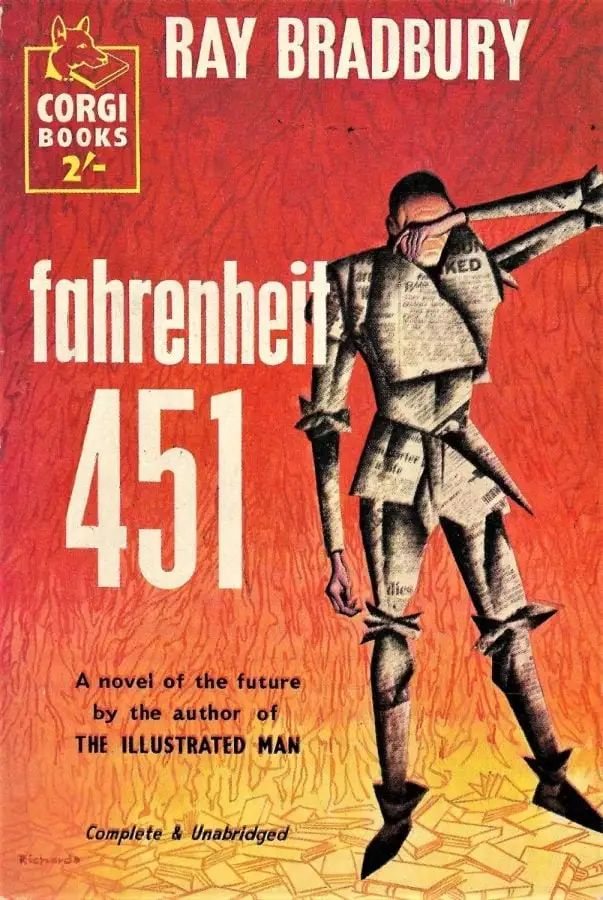
cross-posted from: https://kbin.social/m/13thFloor/t/478961
> > > > > > It was a special pleasure to see things eaten, to see things blackened and changed. With the brass nozzle in his fists, with this great python spitting its venomous kerosene upon the world, the blood pounded in his head, and his hands were the hands of some amazing conductor playing all the symphonies of blazing and burning to bring down the tatters and charcoal ruins of history. With his symbolic helmet numbered 451 on his stolid head, and his eyes all orange flame with the thought of what came next, he flicked the igniter and the house jumped up in a gorging fire that burned the evening sky red and yellow and black. He strode in a swarm of fireflies. He wanted above all, like the old joke, to shove a marshmallow on a stick in the furnace, while the flapping pigeon-winged books died on the porch and lawn of the house. While the books went up in sparkling whirls and blew away on a wind turned dark with burning. > > > > > > Wikipedia
The Hitchhiker’s Guide to the Galaxy - Douglas Adams - 1979

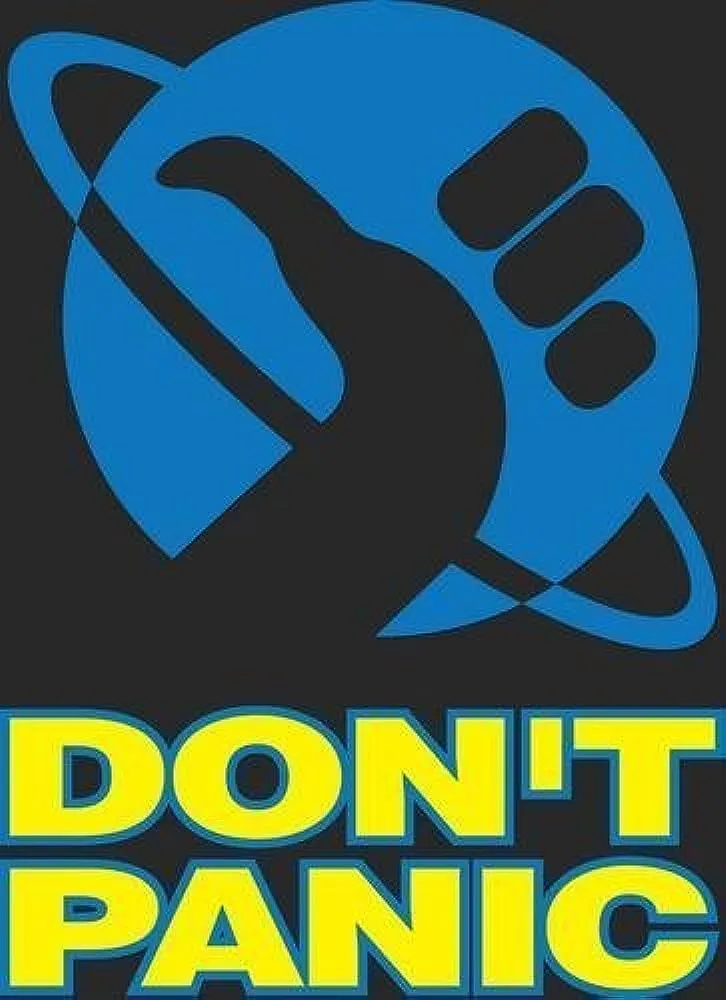
cross-posted from: https://kbin.social/m/13thFloor/t/476755
> Don't panic, and bring a towel. > > For seasoned galactic travelers, if you're looking for the Ultimate Hitchhiker's Guide to the Galaxy, which includes: > > * Hitchhiker's Guide > * The Restaurant at the End of the Universe > * Life, the Universe, and Everything > * So Long and Thanks for All the Fish > * Young Zaphod Plays It Safe > * Mostly Harmless > > ... this wormhole should get you there. > > Also, upon conferring with both Space and Ice Pirates, I've been persuaded to also provide their contribution here in honor of the late, great Douglas Adams. > > Now could you guys please untie my cats and get them off the plank?
A Tolkien Bestiary - David Day - 1949

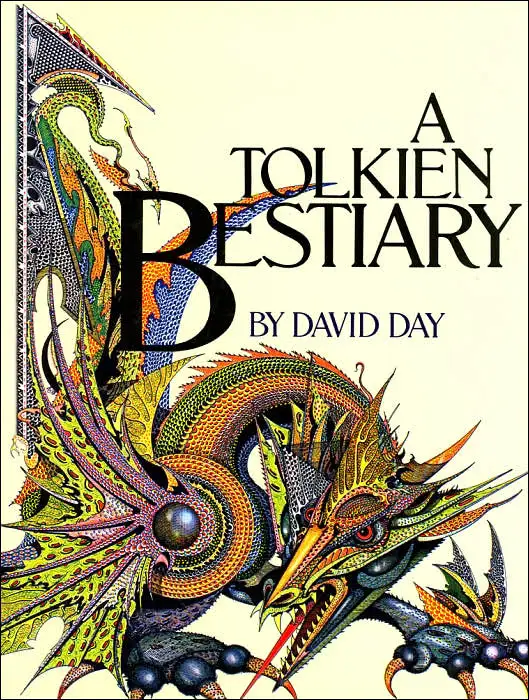
cross-posted from: https://kbin.social/m/13thFloor/t/468547
> > > > > > David Day's A TOLKIEN BESTIARY is a scholarly, definitive and enchantingly beautiful explanation of all the imaginary beasts, monsters, races, nations,deities, fauna and flora of J.R.R- Tolkien's fantasy worlds of Middle-earth and the Undying Lands. > > > > > > > > David Day has identified, analyzed and described 129 separate races. Each is lucidly explained in terms of its physical appearance, language, behavior and culture. A TOLKIEN BESTIARY does not retell their stories: its purpose is to make Tolkien’s own books more accessible by identifying his living creatures and explaining their roles in his epic world. > > > > > > --- > > While not the most accurate of the Tolkien Bestiaries, this one was the first, and the one with the best artwork. > > Downloads for the novels: > > * Fellowship of the Ring > > * The Two Towers > > * Return of the King > > * The Silmarillion
Karel Čapek - War with the Newts - 1936

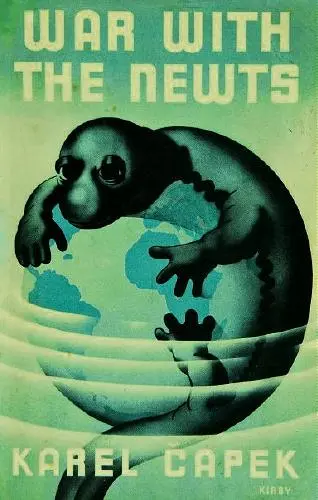
cross-posted from: https://kbin.social/m/13thFloor/t/359206
> > > > > > Karel Čapek’s last major novel, War with the Newts, is a satirical dystopian masterpiece, both prescient and timeless, uniquely Czech and yet universal in appeal. Published in 1936, it remains one of the most thought-provoking novels ever written. > > > > > > Wikipedia > > The full novel in html, courtesy of Project Gutenberg Australia
Shame - Sir Ahmed Salman Rushdie - 1983
cross-posted from: https://kbin.social/m/13thFloor/t/452228
> > > > > > In the remote border town of Q., which when seen from the air resembles nothing so much as an ill-proportioned dumb-bell, there once lived three lovely, and loving, sisters. Their names . . . but their real names were never used, like the best household china, which was locked away after the night of their joint tragedy in a cupboard whose location was eventually forgotten, so that the great thousand-piece service from the Gardner potteries in Tsarist Russia became a family myth in whose factuality they almost ceased to believe . . . the three sisters, I should state without further delay, bore the family name of Shakil, and were universally known (in descending order of age) as Chhunni, Munnee and Bunny. > > > > > > > > And one day their father died... > > > > > > --- > > > > > > > Shame is Salman Rushdie's third novel, published in 1983. This book was written out of a desire to approach the problem of "artificial" (other-made) country divisions, their residents' complicity, and the problems of post-colonialism when Pakistan was created to separate the Muslims from the Hindus after Britain gave up control of India. > > > > > > > > The book is written in the style of magic realism. It portrays the lives of Iskander Harappa (sometimes assumed to be Zulfikar Ali Bhutto), and General Raza Hyder (sometimes assumed to be General Muhammad Zia-ul-Haq), and their relationship. The central theme of the novel is that begetting "shame" begets violence. The concepts of 'shame' and 'shamelessness' are explored through all of the characters, with the main focus being on Sufiya Zinobia and Omar Khayyám. > > > > > > Wikipedia on Shame > > Wikipedia on Sir Salman Rushdie > > --- > > While the Satanic Verses get most of the press when talking about Rushdie, Shame is a masterwork of magical realism that deserves more attention.
maybe just search for some content?
the interconnections do not end at this point: peepal tree not only helped to establish peekash (run today by [bocas lit fest](https://www.bocaslitfest.com/ of trinidad and tobago), but peepal tree also recently integrated hoperoad publishing, yet another great uk indie dedicated to literature from the global south
I haven't read him, but Brandon Sanderson has been mentioned to me more than once for his world-building. I've heard good things about Tress of the Emerald Sea, though I don't know how world-buildy it is compared to his other books.
I started reading progression fantasy on Royal Road earlier this year (a site for posting web serials). Here's my current follow list (excluding stories that are on hiatus):
- The Runic Artist — isekai, rune-based crafting, good mix of action and slice-of-life
- The Broken Knife — Kobold MC with a dragon companion, dark but compelling read, excellent worldbuilding
- Demon World Boba Shop — cozy isekai, nice characters
- Dual Wielding — slow burn, tale of two friends (both very talented), writing is good, action scenes get dark and intense
- Legends and Librarians — cozy romance, magical library (not litrpg/progression), plenty of cute creatures
- An Otherworldly Scholar — isekai, teacher MC, good worldbuilding, nice romance, great characters, plenty of twists, adventure and danger, especially enjoyed the slice-of-life stuff
- Archmage from Another World: Gaining Administrator Access — isekai from another fantasy world, lighthearted fun with good set of characters, no looming world-level threats so far
- Underkeeper — MC is a recent magical academy graduate, good at magic but works as underkeeper (no money/connections to join adventurer groups), got darker than I'm comfortable with, but loved the characters and the demon companion
- Immovable Mage — good worldbuilding, characters, plot twists and detailed magic system, clever use of plot events pushes MC towards OP, would suggest to read at least till the end of 2nd arc
- Level One God — likeable MC, cool magic stuff I haven't seen before, some bad moments are really dark, good writing
- Spire's Spite — criminally underrated with only 100+ followers, mostly been spire climbing so far, good magic system, dark and has some stuff I don't like but overall I've enjoyed it
- Blood Curse Academia — overall I enjoyed the combination of action, learning and mystery, but a lot of weird coincidences and stuff didn't make sense
- Mana Mirror — loved the concept of mana garden and the myriad customization options, writing and plot was easy to follow, third volume is the best so far
- The Maid Is Not Dead — writing felt like traditionally published epic fantasy with progression elements, slow burn but events are starting to escalate
- Dark Lord's Last Call — MC's soul is swapped with the dark lord, plans to open a tavern, enjoyable light-hearted read
- Orphan — I usually ignore the litrpg math but this one takes it a bit too far! characters all have flaws (though sometimes it becomes a bit too irritating), good worldbuilding and mystery
- Rules of Biomancy — 70 year old herbalist MC with a secret past comes across two isekai-ed people in danger of dying and decides to help, enjoying a lot
Joined but its a bit shit I can only import from GoodReads.
Before being so harsh about a platform, I’d say do a bit of research about said platform.
It was created by two people initially as a side project. The quoted text below is from the first link.
Who is behind The StoryGraph? It's run and built by Nadia Odunayo and Rob Frelow. It started life as a personal side project of Nadia's to create and track progress through reading lists
And right now it is being developed by three people (founder, co founder and admin/supporter).
So yeah, of course it’ll be a bit lackluster when it’s 3 people versus a company like Amazon. But despite that, they’re doing a very well job. I’ve been using the site since (I think) 2020 and really like it. They actually listen to their user-base.
Things Not Seen by Andrew Clement
I distinctly remember reading this in first grade because my teacher did this thing where you had to read to her for her to judge your reading capabilities, and I started to read aloud the part where he talks about his #2s not being invisible and I was embarrassed to read that out loud lol
I only know of Vance what I've read in the last week or so but this is more bloviation and less actual journalism.
Trump’s veep pick overcame generational poverty and a dysfunctional family. But the life lessons he celebrates are a dead end for the rest of us.
The author never explains why JD's ideas are dead ends.
Vance outlines the only two principles he feels are important: get more money, get more power.
If you actually want to change things this is great advice.
But, he spends the majority of his political tirades against individuals themselves describing how people become reliant on a welfare state and become lazy, self-hating, and apathetic as a result.
I'd have to read his actual words to know whether this is an accurate summary. I know that his tech bro backers would probably agree with the idea that the welfare state is expensive, poorly managed and a net negative in it's current state.
Much of his rage towards immigrants...
He married an immigrant.
Vance is a new type of masculine heroine that views his brain as his greatest asset...
Having self-control, intellect and being industrious has always been a part of a healthy masculine identity. Not sure what he means by "new".
and wants taxes to stop limiting his use of it.
If you are smart and want to use your resources to change things then taxes get in your way. If on top of that you think taxes are wasted by being sent to foreign countries or subsidizing the unlawful entry and residence of foreigners on American soil then you will want to stop paying them entirely. (He talked about this a bit in his speech)
I recommend this article if you want insight on what makes him tick.
For entry, easy to read sci-fi that is positive or utopian, I think the author Ursula K. LeGuin is an obvious choice.
Maybe start with The Dispossessed.
Significant Digits, the fan sequel to the only fanfic I actually enjoyed (HPMOR).
Running The Light by Sam Tallent. Novel about a fictional stand up comedian, old road dog that was once huge but his career has taken a nose dive since the late 80s early 90s. Huge fan of the real author's real stand up so I picked it up, and it's funny and sad and "real" and goddamn this guy can write.
That and comics as always, as you well know I'm sure haha.
Btw for anyone here so far unaware, I'm going to plug Bookwyrm real fast. It's basically goodreads but federated and private and not owned by scamazon. Pick you an instance and sign on up! There's not really a good app for it but I use it in the browser and it works just fine. It's neat, just needs to grow a bit!
Not sure i can post the link, anyway...

This is the best summary I could come up with:
The process of Jewish expansion over Palestinian land has involved maintaining a “system of domination,” says author Nathan Thrall on this week’s Intercepted.
In order to constrict “Palestinians into tighter and tighter space” over the decades, Israel has deployed a strict permit system, movement restrictions, walls, fences, segregated roads, and punitive actions such as arrests and detentions, even of children.
In “A Day in the Life of Abed Salama: Anatomy of a Jerusalem Tragedy,” Thrall’s book, published just before the start of the current war, tells the story of one Palestinian man’s struggle to navigate Israel’s painful system of legal and security controls after his son’s school bus is involved in a fatal accident.
Thrall joins host Murtaza Hussain in a discussion about the system of control that Israel maintains over Palestinians, violence in the West Bank, the future outlook for a negotiated solution to the conflict in Gaza, and possible escalation amid fighting at Israel’s northern border.
“A Day in the Life of Abed Salama” is a 2024 nonfiction Pulitzer Prize winner.
Thrall is also the author of “The Only Language They Understand: Forcing Compromise in Israel and Palestine.”
The original article contains 193 words, the summary contains 190 words. Saved 2%. I'm a bot and I'm open source!
This is the best summary I could come up with:
While poignant and vulnerable, her memoir is also insightful and funny, especially as she recounts adventures with Russell and her attempts to track down and reclaim jewelry that was stolen from her apartment about a month before he died: a caper he would have enjoyed in the telling.
Renée DiResta, a disinformation researcher at Stanford University, shares her own experiences on the front lines of the struggle to define objective reality, including entering the field after confronting anti-vaccine sentiment when she became a parent.
Slow Productivity: The Lost Art of Accomplishment Without Burnout by Cal NewportIf you’re the typical knowledge worker, your life is overwhelmed by a dizzying flurry of emails and Slack messages breaking your focus every few minutes.
Deeply reported and deftly written, this book is a feat not only because it sheds light on one of today’s most consequential political figures, but also the history that shaped him and the tectonic shift in geopolitics that he’s now forced to navigate.
Undergirding all is a culture of privilege, yes, but also silence and tradition rooted in the British Empire, sending 8-year-olds away from home as “the done thing.” Spencer’s quote from author Hilary Mantel in the book’s epigraph is telling, “I am writing in order to take charge of my childhood.” — Shannon Rhoades, senior editor, Weekend Edition
From a humorous take on getting drenched in a rainstorm to a beloved tree on its last day of existence to a woman processing the bleak reality of the world her grandchildren will inherit, these poems encouraged a heightened noticing in me and (bonus!)
The original article contains 2,586 words, the summary contains 264 words. Saved 90%. I'm a bot and I'm open source!
Most of Brandon Sanderson's newer books make me feel like that.
Hello Stranger by Katherine Center might be one that fits the criteria.
I do the same with Superpowereds by Drew Hayes
I judge all superhero media against Worm.
I switched to Bookwyrm. It's been fine, but I do miss the social aspect of having my existing friends on there. Not enough to try to convince like 10 people to migrate their entire accounts, especially since imports from Goodreads are currently broken.
Link for people who, like me, spent 10 minutes trying to get links other than Barnes & Noble and publishing houses: https://hardcover.app
I also recommend StoryGraph for this same purpose

